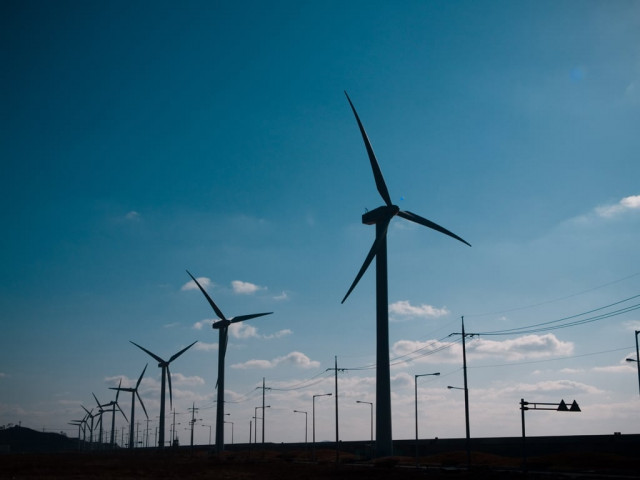Energy round-up: A year of shattered dreams
Consumers faced high oil and power prices and increased outages.

People were expecting that the Pakistan Muslim League-Nawaz (PML-N) government, which took over in June, would bring some respite from the pain caused by rising prices, high unemployment and crippling energy shortages. But what they saw from the very beginning was an increase in electricity and oil prices and prolonged outages, which experts blame on poor handling of affairs.
On its part, the government insisted that the power tariff increase was necessary to reduce burgeoning subsidies and the oil price rise was the outcome of high rates in the international market.
The PML-N government, in a bid to escape from the debt burden in the energy chain and arrest outages, swiftly cleared the Rs500 billion inter-corporate debt, left by the previous PPP-led government. However, the debt is rearing its head again as the figure has crossed Rs225 billion despite the raise in power tariff.
The tariff was increased by 31% for domestic consumers and by over 100% for commercial and industrial consumers, stoking inflation.
Giving the reason for the failure to control the debt and load-shedding, experts suggest that the government only focused on increasing tariffs and did nothing to rein in electricity theft, which has left the energy sector in tatters. Estimates say Rs250 billion worth of electricity is stolen every year.
Gas shortage
Residential consumers of Sui Southern Gas Company (SSGC) in Sindh were experiencing markedly reduced gas pressure or even no gas at all sometimes because of what experts say a result of poor planning of the federal government.
In the case of Sui Northern Gas Pipelines, which caters to the demand in Punjab and Khyber-Pakhtunkhwa, the government bowed to intense lobbying by the industry and met their demand while domestic consumers endured outages.
Oil prices
Oil consumers had no respite either. They were paying up to 9.4% higher prices compared to rates at the beginning of 2013. At the end of the year, the price of petrol stood at Rs112.76 per litre compared to Rs103.07 on January 22, high-speed diesel cost Rs116.75 per litre against Rs109.21 in January and kerosene oil fetched Rs108 per litre compared to Rs99.90 earlier.
This came despite a drop in prices of crude oil in the global market. Experts point to the depreciated rupee as a weaker currency makes imports pricier. The price of crude oil was $108.76 per barrel in December compared to $110.47 in January.
On the other hand, Pakistani rupee, which stood at Rs97.55 against the dollar, went up to Rs107.40.
Hopes for 2014
The New Year may bring some hopes if the government undertakes sincere efforts to tap new domestic and external sources of gas supply and put the economy on a path of stronger growth. Power outages are shaving 3% off growth every year.
Among the key foreign sources of energy are Turkmenistan-Afghanistan-Pakistan and India (TAPI) gas pipeline and the Iran-Pakistan (IP) gas pipeline. The US has been pressurising Pakistan to abandon the IP project and solely focus on the TAPI pipeline, which can win US companies contracts worth billions of dollars.
Now, the fate of the IP pipeline is uncertain. Under an agreement, Pakistan is bound to start receiving 750 million cubic feet of gas per day (mmcfd) by the end of 2014 for generating 4,000 megawatts of electricity.
The energy plan also includes import of 200 mmcfd of liquefied natural gas (LNG) in November 2014, but the award of contract has sparked controversy.
Pakistan also enjoys vast domestic gas reserves, but exploration work has been hampered by poor law and order and bureaucratic hurdles. Therefore, experts believe, gas load-shedding may persist even in 2014.
Alternative energy
Alternative energy projects like solar and wind power could also help ease power outages as work on some ventures have already got under way. However, actual improvement will come when the rickety power transmission and distribution infrastructure is replaced.
Published in The Express Tribune, January 1st, 2014.
Like Business on Facebook, follow @TribuneBiz on Twitter to stay informed and join in the conversation.



















COMMENTS
Comments are moderated and generally will be posted if they are on-topic and not abusive.
For more information, please see our Comments FAQ